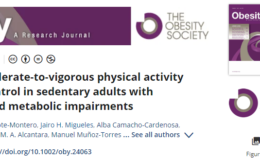Four Mistakes Regarding Dinner
- By : Eileen
Eating is a big deal. But what is sad is that most people ignore these four facts about dinner that should be taken seriously.
Various mistakes regarding dinner
1. Too late
It is usually fairly early to finish dinner at nine o’clock, some dinner parties last until midnight either at home or at a party. Night time is a time when people are supposed to rest after a busy and exhausting day. Being too late for dinner can affect morpheus quality, and leads to high blood sugar level. Plus, because energy metabolism is slow, obesity and other related diseases are inevitable in the long term.
The most appropriate time for dinner is around 6-7 PM and the latest no more than 9 PM. The time interval between dinner and lunch is preferably no more than 6 hours.
2. No staple food
As people pay attention to body shape, it is hard to avoid listening to some improper weight loss methods of some weight-loss organizations and dieting blindly.
For people that do not need to control weight, the body will use fat and protein for energy if there is inadequate staple food intake. Fat decomposition can produce more harmful to the body material of organic acids. Protein as an energy source their metabolic process is more complex. It can produce certain toxic metabolites such as urea nitrogen. Such functional modes not only increase the metabolic burden of the body, but also impair the structure and function of vital organs such as liver and kidney.
For people who really need to lose weight, they can control the amount of staple food appropriately.
As for the choice of staple food, try to avoid white rice and noodles.
3. No dinner
There is also a group of people who simply don’t eat dinner, listening to the so-called “no food after lunch” saying. The meal time interval is too long if there is no dinner. This affects islet and gallbladder function, especially prone to bile common enrichment of gallstones.
4. Too full, too greasy
Too greasy and excess fat intake can lead to elevated blood lipids and cholesterol. What’s more, high cholesterol can stimulate the liver more low density and low density lipoprotein, which causes atherosclerosis and coronary heart disease, etc. Excess protein intake can increase the metabolic burden of the gastrointestinal tract, liver and kidney, which is a very unhealthy diet for patients with liver and kidney diseases.


